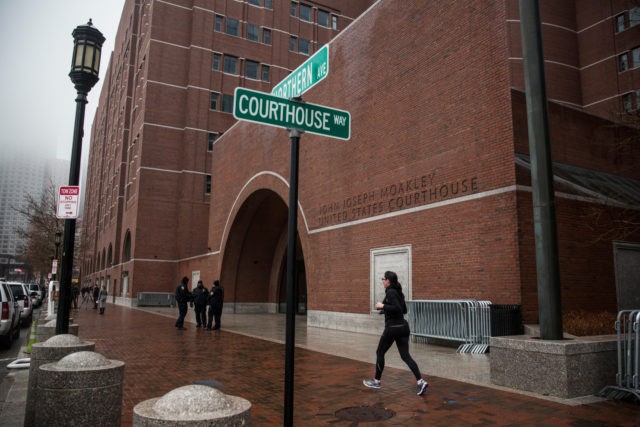Shareholders of Fannie Mae and Freddie Mac ran into another obstacle this month in their nearly decade-long efforts to lay claim to the profits of mortgage-finance giants.
A panel of judges for the United States Court of Appeals for the First Circuit overturned a decision that is central to the long-running lawsuit brought by Fairholme Funds and other Fannie and Freddie shareholders against the Federal Housing Finance Agency and the U.S. Treasury Department in the U.S. Court of Federal Claims.
A crucial question in the Fairholme case is whether the FHFA is a government actor when it performs as the conservator of Fannie and Freddie. If the FHFA is considered a private actor, it cannot be sued in the Court of Claims, which only hears cases for monetary claims against the government.
Longstanding precedent has held that when regulators act as receivers they “step into the shoes” of the private companies they control. But Judge Margaret M. Sweeney of the Court of Federal Claims in 2019 denied the FHFA’s motion to dismiss, holding that the FHFA counted as a government actor because it was a conservator rather than a receiver.
In reaching her decision, Judge Sweeney cited the reasoning of Sisti v. Fannie Mae, a decision by a federal district court in Rhode Island that allowed a case brought by homeowners against the FHFA to proceed. In June, however, the First Circuit overturned the district court’s ruling.
The Rhode Island case was one of several brought homeowners who challenged non-judicial foreclosures by Fannie Mae and Freddie Mac, claiming that the companies and the FHFA had violated their Fifth Amendment due process rights. The FHFA, which has been the conservator of Fannie and Freddie since 2008, asked for a summary judgment on the grounds that it undertook the foreclosures as a private actor, an argument that had been successfully used to fend off challenges to actions taken by banks in receivership.
Judge John M. McConnell of the U.S. District Court in Rhode Island ruled in favor of the homeowners in Montilla v. Fannie Mae and Sisti v. Fannie Mae, decisions which would have allowed the cases to proceed. The district court held that although government agencies can be considered private actors for the purposes of financial institutions in receivership, which typically lead to a bank or similar company being wound down or sold off, the same was not true for a conservatorship, in which the failed institution is kept afloat in order to either facilitate an orderly receivership later or be rehabilitated. When the FHFA acts as conservator, Judge McConnell held, it retains its governmental character.
“That analysis is simply wrong and contrary to law,” the First Circuit panel wrote in a June 8, 2020 opinion overturning the district court in the Montilla case. “We hold that, in its role as the GSE’s conservator, FHFA is not a government actor because it has ‘stepped into the shoes’ of the private GSEs.”
Judge McConnell’s decision in Sisti was also overturned and both cases, along with similar lawsuits, were remanded with orders to grant summary judgment to the FHFA.
Although neither case directly involves Fannie and Freddie shareholder litigation, Judge McConnell’s now overturned reasoning was the lynchpin of Judge Sweeney’s decision that kept the Fairholme case alive in the Court of Federal Claims. And while the Court of Claims is not directly bound by the First Circuit decision, it may influence the court to rethink the Sweeney ruling. Lawyers for the FHFA are certain to bring the case to the court’s attention.
What’s more. on Friday the U.S. Court of Appeals for the Federal District agreed to hear an appeal of Sweeney’s decision. It’s likely that court will agree with the First Circuit. If it winds up disagreeing with the First Circuit, that will create a circuit split that is likely to bring the case before the Supreme Court.
The Fairholme case was brought by shareholders who challenged 2012 changes to Fannie and Freddie’s bailout terms. Those changes require Fannie and Freddie to send nearly all of their profits to the government in exchange for past government support and the promise of future support. The Treasury agreed to give up its right to a fixed yearly 10 percent dividend in exchange for a flexible dividend that could go all the way down to zero when the companies lost money. The shareholders said the arrangement, known as the Net Worth Sweep, amounts to an unconstitutional taking of assets and illegal self-dealing between Treasury and the FHFA.
In the years since the government put the Net Worth Sweep in place, shareholders have brought similar cases in several federal courts across the country, often with the backing of hedge funds willing to pay the legal bills. Nearly all those cases were dismissed at the district court level and all but one of those dismissals were upheld by federal appeals courts.
The one exception came when a deeply divided en banc panel of the U.S. Court of Appeals for the Fifth Circuit upheld some of the shareholder claims, including the claim that the FHFA’s structure is unconstitutional because it has a single director who is only removable by the president “for cause.” The Supreme Court, which has struck down similar “for cause” provisions for the Consumer Financial Protection Bureau and administrative patent judges, heard oral arguments in that case in December and a decision is expected in the near future.
The cases are Sisti v. Fannie Mae, No. 20-2026 and Montilla v. Fannie Mae, No. 20-1673, in the First Circuit; Fairhome Funds v. U.S., No. 20-167, in the U.S. Court of Federal Claims; and Collins v. Yellin/Yellin v. Collins, Nos. 19-563 and 19-422 in the Supreme Court of the United States.

COMMENTS
Please let us know if you're having issues with commenting.